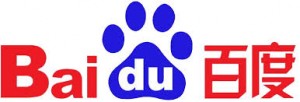INTERNET: Baidu Jumps on Spin-Off Hopes, NetEase Takes a Breather
Bottom line: Baidu’s shares could see some upside through the rest of the year if it executes on reported plans to spin off its money-losing businesses, while NetEase could post lackluster performance unless it gets more aggressive in M&A.

Two of China’s top Internet companies have just released their latest quarterly results that both look pretty good, even though investor reaction was quite different to the latest financials from leading search engine Baidu (Nasdaq: BIDU) and NetEase (Nasdaq: NTES), China’s second largest game operator. Baidu’s shares jumped 11 percent in after-hours trade after the release of its latest results that largely continued recent trends, while NetEase’s shares plunged 15 percent after its results came out.
In both instances, investors seem to be focused on the company’s financial strategy going forward rather than actual numbers in their latest reports. In the case of Baidu, investors are eagerly awaiting execution of a plan that will reportedly see the company spin off many of its newer non-search businesses that are losing big money. In the case of NetEase, investors may be disappointed that the company has been a non-player in China’s Internet M&A scene, even though it has quite a lot of cash in its coffers.
The bottom line is that investors will continue to focus on big-picture strategy like this for the next year or two, meaning Baidu’s shares could see some upside if it really executes on the plan to spin off units like its Nuomi group buying site and its Qiyi online video service, formerly known as iQiyi. NetEase, meanwhile, could come under pressure if it continues a conservative approach that has seen it use its cash to offer large dividends and buy back shares rather than for M&A.
Let’s begin with Baidu, whose latest results look largely in line with its recent trends. The company reported its revenue grew 33 percent in last year’s fourth quarter, and its online search business still accounted for the huge majority of that figure, around 95 percent. (company announcement; English article; Chinese article)
Baidu also reported that its operating profit rose 20 percent, much slower than its revenue growth, as its money-losing newer businesses dragged down margins. It forecast revenue growth of 28-33 percent in the current quarter, excluding results for its Qunar (Nasdaq: QUNR) online travel business that it only recently started including in its results.
Some media are pointing out the fourth-quarter revenue figure was slightly ahead of market consensus, but in my view that’s not the real reason behind the stock’s jump after the results came out. The jump is more related to looming excitement about the spin-off plans, which were first reported last month, though Baidu has yet to confirm anything. (previous post) Thus if Baidu doesn’t make solid progress on that plan, its shares could come under pressure later this year.
Profit Doubles
Next there’s NetEase, which also reported performance that looks quite strong on the surface. The company’s revenues soared 91 percent during the period, and its profit doubled. Much of that was driven by its core gaming revenues, which doubled during the quarter and account for 70 percent of its total. (company announcement; Chinese article)
It’s worth noting that the drop in NetEase’s stock is probably at least partly a pull-back after a very strong run over the past year. The stock soared as much as 80 percent last year, and before the latest sell-off was still up about 60 percent over the last 52 weeks. Many investors like the company because it’s a strong second to leading game operator Tencent (HKEx: 700), and has very good in-house game development abilities.
But investors may also be growing impatient with NetEase’s low-profile chief, Ding Lei, who hasn’t made any major acquisitions or done other big tie-ups despite having $4 billion in cash. Instead NetEase has started issuing regular quarterly dividends, which totaled around $2 per American Depositary Share (ADS) last year. It also launched a $500 million share buyback last year. Both moves reflect the company’s conservative stance, which may be a turn-off for investors who wish NetEase would get more aggressive like many of its larger peers in China’s consolidating Internet.
Related posts:
- INTERNET: Baidu Hedges Between US, China with Spin-Off Plans
- ENTERTAINMENT: iQiyi Eyes IPO, Youku Nears NY Exit
- INTERNET: Alibaba Seeks Share Boost with Wine, NetEase with Cash
- Today’s top stories
